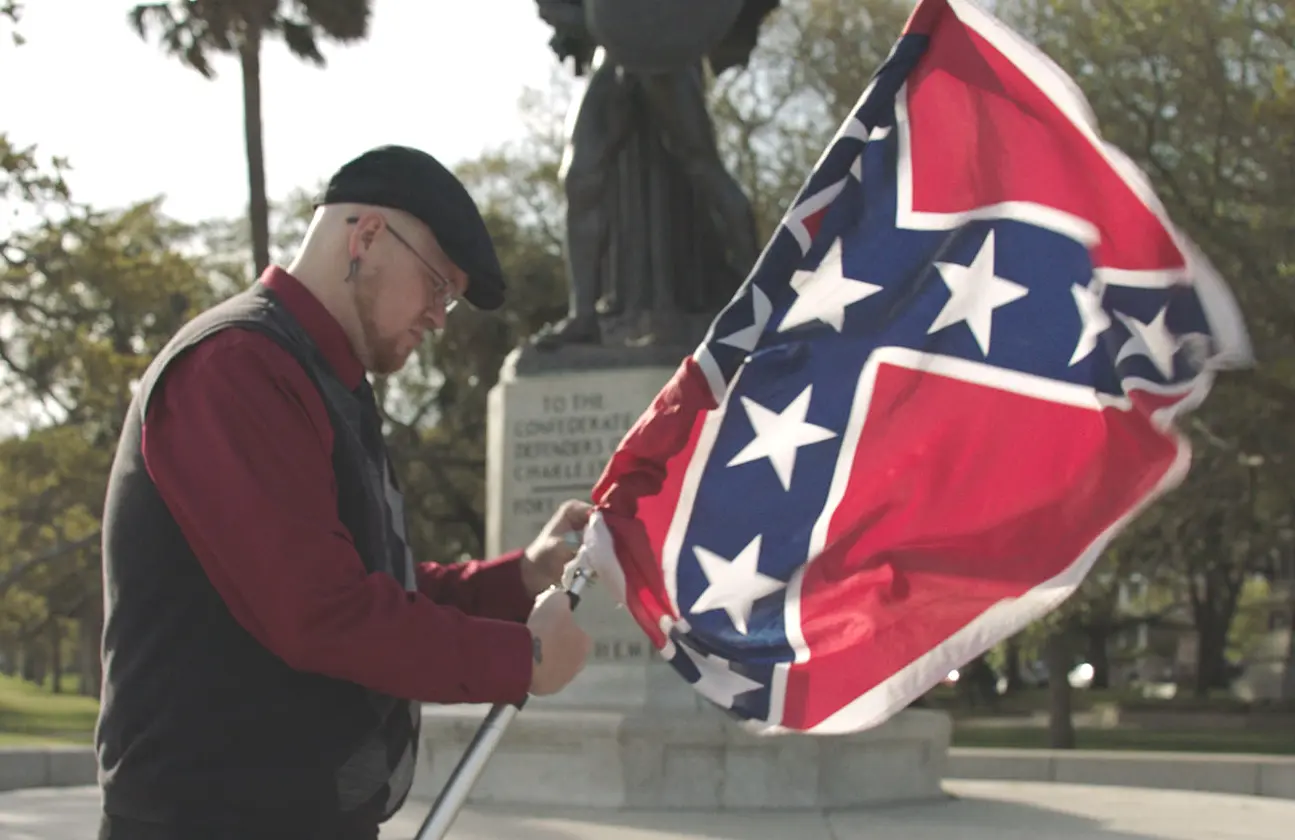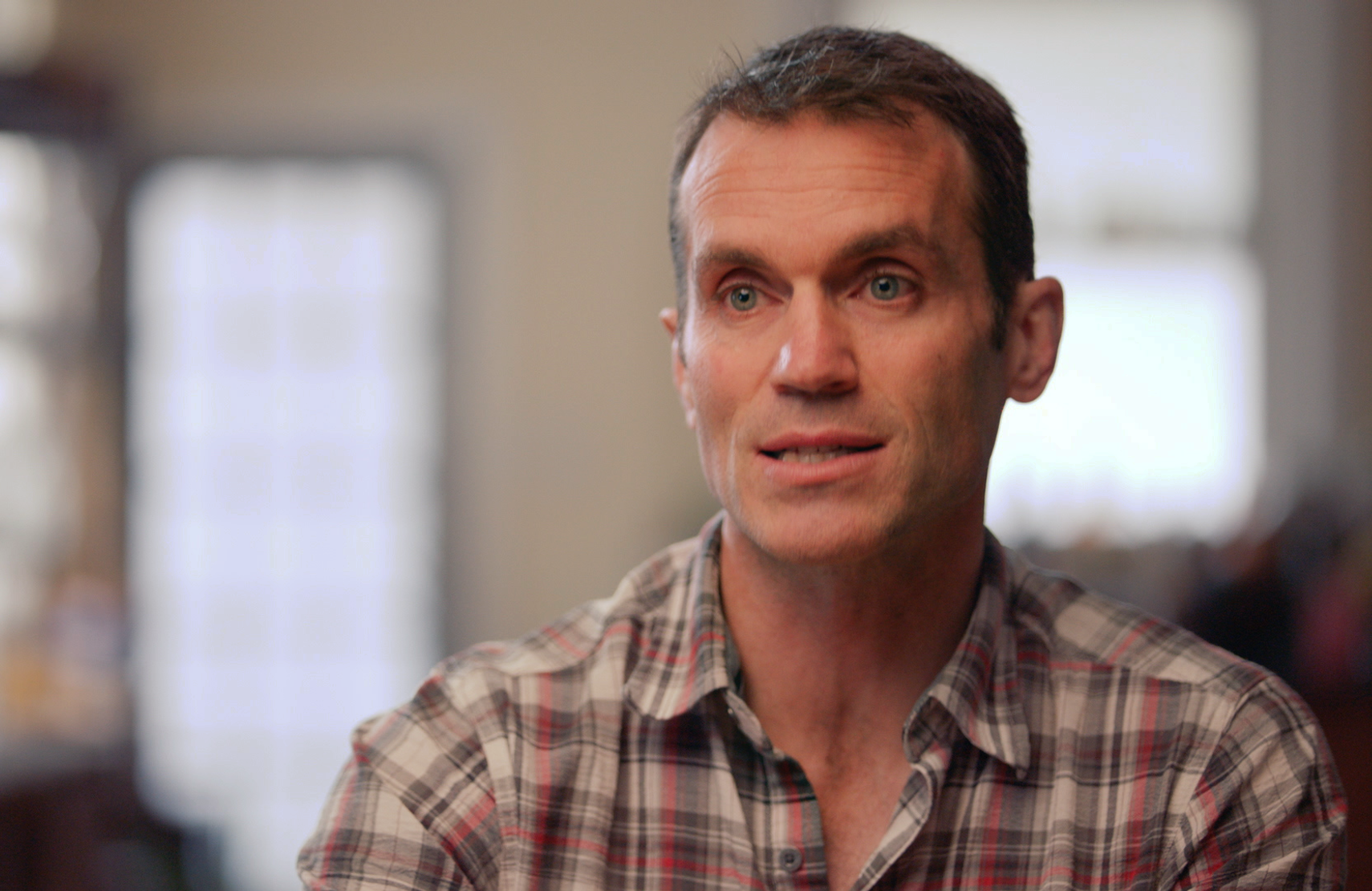Discovery’s Why We Hate Is a Depressing Catalog of Human Depravity, With a Hopeful Ending
-
 James Bessenger of the South Carolina Secessionist Party unfurls his Confederate Flag in Why We Hate. (Photo: Amblin Entertainment/Discovery)
James Bessenger of the South Carolina Secessionist Party unfurls his Confederate Flag in Why We Hate. (Photo: Amblin Entertainment/Discovery)There’s no shortage of books and TED talks explaining why people hate each other, but they don’t seem to be doing a whole lot of good. Every night when I turn on the network news — a horrible lifelong habit I’ve written about before — I’m confronted with fresh evidence of humanity’s endless desire to inflict pain on others.
So it was with more than a bit of skepticism that I started watching Why We Hate, a six-part series executive produced by Steven Spielberg and Alex Gibney. Spielberg is no stranger to the topic of hate, having directed Schindler's List and founded the nonprofit Shoah Foundation with its profits, and anything that interests Gibney — he of the classic Enron, Scientology, and Oscar-winning Taxi to the Dark Side documentaries — interests me.
To my surprise, I learned something from Why We Hate that made me feel optimistic that maybe, someday, we might stop shooting and torturing each other. This has less to do with the big-name directors presenting it than the channel airing it. Discovery’s brand is taking scientific concepts and turning them into bite-sized stories that, even if you’re barely paying attention, might teach you something. (I still turn the lights off when I leave a room, even for a minute, thanks to a Mythbusters episode I saw 13 years ago.)
Of course, this is also the channel that goes bananas for Shark Week every summer. And maybe I’m kidding myself, but I did learn something from Why We Hate. And afterward, I felt strangely encouraged by the knowledge that scientists are actually making progress on something that has eluded generations of diplomats, UN officials, and clergy — unlocking the human potential for peace.
Or as Brian Hare, the Duke cognitive scientist who explains his remarkable research into animal aggression in the opening episode, puts it: “Science is a really powerful tool to help us understand what’s driving conflict and how we can get beyond it.”
At its strongest, this series gives solid, easy-to-grasp explanations for why the human brain likes dividing the world up into “us” and “them” and why that impulse is so hard to resist. At its weakest — specifically, the two episodes after the one airing on Sunday — Why We Hate is more like How We Hate, dwelling too long on the political divide in America and the role social media plays in pitting people against each other. One episode is given over to the wanderings of journalism professor and New Yorker staff writer Jelani Cobb. He’s very telegenic, which is why he’s on MSNBC all the time. But… he's not a scientist.

The person to keep your eye on is Emile Bruneau, a neuroscientist featured in the series finale (which you’ll have to wait until Nov. 17 to watch). His groundbreaking work has begun to show how humans can move past tribalism and the dehumanization of those not like us, and train our brains to understand and re-humanize those with differences.
Bruneau is infectiously upbeat and able to translate scientese to televisionese. And his field work is fascinating. We accompany him to Colombia, where he interviews people who had voted against a peace deal that would have ended the country’s 50-year civil war. Why would people not want to end a war that had taken 200,000 lives and makes our country’s political tug-of-war seem like, well, a tug-of-war? Bruneau asks, “How can we use the tools of science to foster peace-building?” The interactions with his Colombia-based camera crew make a compelling case study in itself.
If you’re short on time, just watch Sunday’s opener and the Nov. 17 finale. That episode looks at three of the 20th century’s signature conflicts, whose lessons are only now starting to be learned. There’s also a great segment on how meditation is being used to break the culture of violence and rage in Baltimore.
As with so many docuseries these days, I found myself wondering — around episode four — if this could have been shorter. At times Why We Hate is less illuminating than depressing, as it catalogs the many ways humans have found to take out their rage and paranoia on others. I can watch that every night on the news.
Aaron Barnhart has written about television since 1994, including 15 years as TV critic for the Kansas City Star.
TOPICS: Why We Hate, Discovery Channel, Alex Gibney, Steven Spielberg